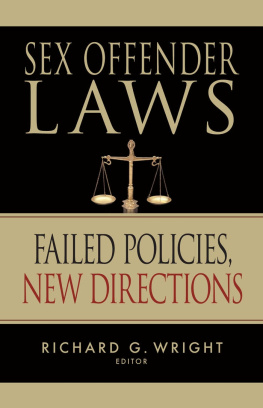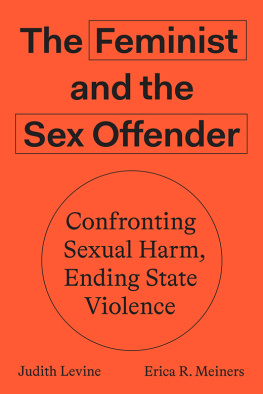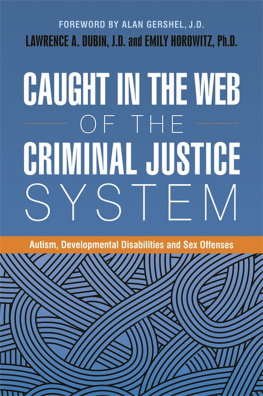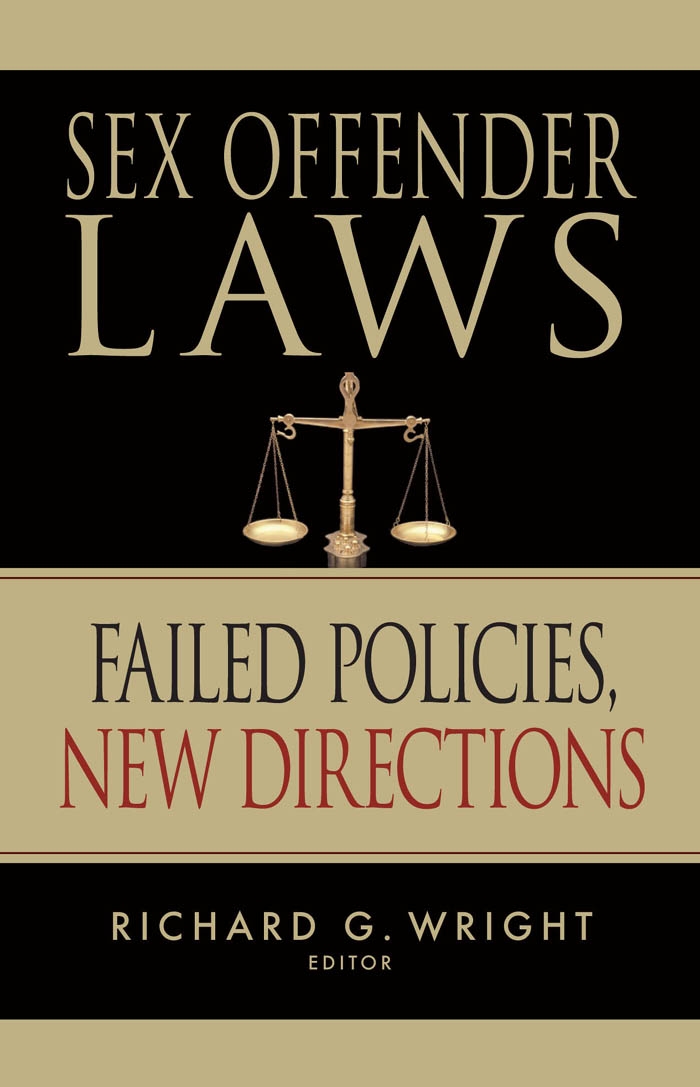Acknowledgements
No volume this exhaustive, dealing with such emotionally charged subject matter, would be possible without a stellar cast of contributors, supporters, and colleagues. My deepest gratitude goes to Jennifer Perillo, my publisher at Springer. Thank you for your vision, your faith in my approach, your patience, and your overall tremendous positive nature. I wish all authors and editors would have the great fortune of working with you. Without your vision and initiative, this important work would not have happened.
This volume includes a plethora of gifted and brilliant scholars. They are both my colleagues and intellectuals I look up to. I am very appreciative of their commitment to the issue of sexual violence prevention and their willingness to take on this project. A heartfelt thank you to Karen Terry, Alissa Ackerman, Lisa Sample, Mary Evans, Jill Levenson, Rachel Bandy, Francis Williams, Michelle Meloy, Shareda Coleman, Charles Scott, Elena del Busto, Corey Rayburn Yung, Jo-Ann Della Giustina, Kim English, Andrew Harris, Cheryl Radeloff, Erica Carnes, and Patricia Wetterling. It is my sincere hope that we will continue our intellectual and scholarly paths to ending sexual violence.
I am very grateful to the support of Bridgewater State College. The support provided by the Center for the Advancement of Research and Teaching (CART), the Adrian Tinsley Program (ATP), the Office of Academic Affairs, and particularly former Vice President Ron Pitt, and the college as a whole, has been a vital part of this endeavor. A special appreciation goes to the Criminal Justice Department and most notably, Moira OBrien, Meghan Chase, and Michelle Cubellis. As undergraduate students who assisted with this research, both Ms. Chase and Ms. Cubellis represent the best of our program. I was privileged to be your mentor, and I look forward to seeing how you change the world. Maybe Ill get to work on your book in a few years.
No editor is worth his salt without another critical pair of eyes. I am very appreciative to Barry Phillips for his help in editing my chapters. Thanks also to Nancy Ryan for her personal encouragement. Thanks are due to Carol Rose, John Reinstein, Norma Shapiro, Ann Lambert, and the Massachusetts Chapter of the American Civil Liberties Union. In this era of American history, the importance and role of the ACLU cannot be understated. A past-due thank to you Carole Upshur, who guided me through the process of becoming a scholar.
I am very appreciative of the assistance of Todd Shuster of the Zachary Shuster Harmsworth Literary Agency in making this work appear in print. Of course, no work such as this is possible without the lifetime guidance and support of ones parents. To my mother, Gertrude Wright, I offer a perpetual, humble, thank you.
Finally, it is my deepest hope to all of those who have been victims of sexual violence: This book was intended to validate your pain and loss and to call for logic, reason, patience, justice, and persistence to guide the governments response. Governments foremost responsibility is to keep people safe. We hope this book will aid in that pursuit.
About the Editor
Richard G. Wright, PhD, is a nationally known expert on the issue of sex offender laws. He has been a practitioner, researcher, scholar, public speaker, and teacher on issues of sexual offending, federal crime control, racial inequality, and domestic violence for 20 years. After many years of community organizing, policy advocacy, and program development and implementation, he received his PhD in public policy from the University of Massachusetts Boston in 2004.
He has been published in peer-reviewed journals, including Criminology & Public Policy , and in legal journals on federal sex offender laws such as the Walsh Act, the 2003 Protect Act, and the 1994 enactment of the Wetterling Act.
He has been interviewed and cited by numerous media outlets, including USA Today , Newsweek , the Boston Globe , and National Public Radio. His intellectual and scholarly agenda includes examining the growth of preventive detention, the balance between civil liberties and the War on Terror, sexual assault, and moral agency.
His scholarly output is mediated by his enthusiastic pursuit in developing new and future scholars. Several of his students have been awarded prestigious research awards. Through his mentoring, his students have conducted studies on international dimensions of sexual assault, and the relationship between gender bias, sentencing, and filicide (i.e., the act of killing ones son or daughter), presenting their work at international conferences. His vision includes a critical assessment of the role of government in crime control and reaffirming the power of young people, the individual, and the community in promoting an accountable, just, fair, and progressive democracy.
Introduction: The Failure of Sex Offender Policies
Richard G. Wright
The right to control ones body is one of the most fundamental, meaningful, and important human rights. How to respond when that right is violated by force, coercion, or threats is one of the most critical decisions that a government must make. In the United States, the sexual violation of children, adolescents, or adults is an all-too-common experience. Millions of women, children, and men have been sexually violated at some point in time. Yet, American policy responses to prevent or address sexual offending, particularly those enacted within the last twenty years, have largely failed. They have not done any of the following:
- reduced sex offenders recidivism rates;
- provided safety, healing, or support for victims;
- reflected the scientific research on sexual victimization, offending, and risk; or
- provided successful strategies for prevention.
The central thesis of this work is that these policies have failed by choice. Policymakers choose to focus on the most heinous sex offenders while ignoring the most common sexual threats that people face. Policymakers are disproportionately influenced by isolated, high-profile cases of sexual assault committed by strangers, to the neglect of the everyday sexual violence committed by known and familiar family, friends, and acquaintances. This choice gives lawmakers simple and clear political benefits but overall has made the public less safe.
Misguided Policies
As is documented throughout this book, policymakers have chosen to allow sex offender laws to be driven by the demonization of offenders, devastating grief experienced by a subset of victims, exaggerated claims by law enforcement, and media depictions of the most extreme and heinous sexual assaults. As a result of this choice, a tremendously expensive criminal justice apparatus has been created, victims have been deprived of resources that could aid their recovery, and efforts to treat and manage offenders have been undermined.
A dominant factor in the passage of these inefficacious sex offender laws is the impact of the tragic, high-profile, stranger-predator sexual assault. Thirty years worth of research has shown that sexual victimization occurs primarily in the context of a preexisting relationship. This research, described thoroughly in chapter 2, shows that the greatest risk of sexual violation comes from ones partner, mother, father, sister, brother, family member, or family friend. As horrific as stranger-predator assaults are, they are far less common than violence committed by an intimate assailant. To the detriment of society, stranger-predator assaults are the guiding force behind todays ineffective sex offender laws.





